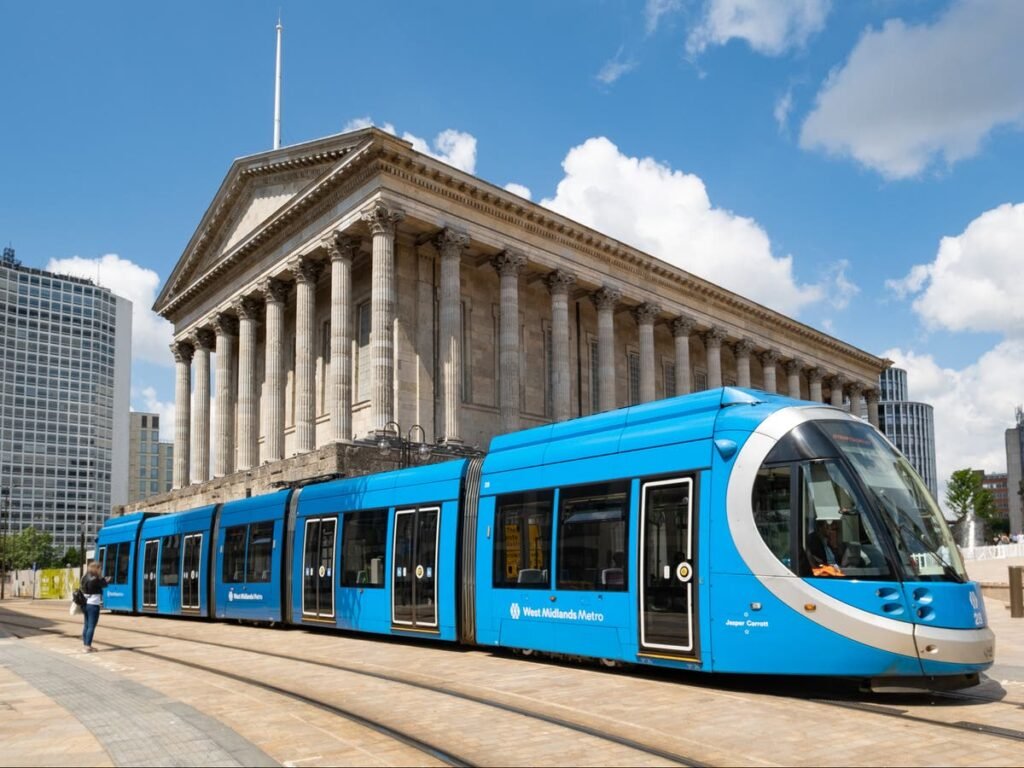Introduction
The Midlands Super Hub region of the UK is at the heart of the country’s industrial, economic, and cultural life. It encompasses major cities like Birmingham, Coventry, Nottingham, and Leicester, each with its own history and influence. But what if this region could be transformed into a powerful “Super Hub”—a dynamic center for commerce, innovation, and transportation that connects people, businesses, and ideas across the UK and beyond?
The Midlands Super Hub is not just a dream; it’s an ambitious vision for the future. A Super Hub could be a place where cutting-edge technology meets traditional industries, where transport networks operate seamlessly, and where economic opportunities grow rapidly. It could offer a much-needed boost to the Midlands economy, creating new jobs, attracting investment, and positioning the region as a global player.
In this article, we will explore the potential of a Midlands Super Hub, its benefits, challenges, and the key areas that need development. This vision could revolutionize the region, making it a more vibrant and prosperous part of the UK. Let’s dive into the idea of what a Midlands Super Hub could look like and why it matters to the region and the country.
The Concept of a “Super Hub”
A “Super Hub” is more than just a location; it’s a multi-faceted development that serves as a central point for innovation, trade, transportation, and cultural exchange. Think of it as a nexus where all aspects of modern life come together in a seamless, interconnected way. Super Hubs are often associated with major cities or regions that offer excellent infrastructure, a diverse range of industries, and the capacity to drive future growth.
For example, globally renowned hubs like Silicon Valley in California or Singapore have established themselves as places of cutting-edge technology, global business, and top-tier research. These hubs combine excellent infrastructure with a highly skilled workforce, efficient transportation systems, and a culture of collaboration and innovation.
In the case of the Midlands, the idea would be to harness the region’s existing strengths—like manufacturing, logistics, and technology—and amplify them through strategic development. The goal is to make the Midlands not just a central player in the UK economy but a regional powerhouse on the global stage. It’s a vision that connects people, ideas, and opportunities in ways that benefit everyone, from individuals to multinational corporations.
The Midlands Region
The Midlands is already one of the most important economic regions in the UK. It includes major urban centers like Birmingham, Coventry, Nottingham, and Leicester, all of which contribute significantly to the country’s economy. However, despite its importance, the region has often been overshadowed by the larger financial hubs like London or Manchester.
One of the key characteristics of the Midlands is its diverse economy. The region is home to thriving industries such as automotive manufacturing (with companies like Jaguar Land Rover and Rolls-Royce), logistics, advanced engineering, and information technology. Additionally, it is a hub for education, with several top universities such as the University of Birmingham and the University of Nottingham driving research and innovation.
In terms of transport, the Midlands is exceptionally well-connected. It is strategically located in the heart of the UK, making it easily accessible by rail, road, and air. Major motorways like the M6 and M1 pass through the region, connecting it to other key parts of the country. The region also benefits from rail networks that link it to cities like London, Manchester, and Edinburgh, as well as the upcoming HS2 high-speed rail link, which will further enhance connectivity.
This blend of industrial strength, academic excellence, and transportation infrastructure makes the Midlands an ideal candidate for becoming a Super Hub. By building on these assets and developing new opportunities, the Midlands can become a central player in the UK’s economic future.
Benefits of a Midlands Super Hub
The benefits of creating a Midlands Super Hub are numerous and far-reaching. For starters, it would provide a significant economic boost to the region. A Super Hub would act as a magnet for investment, attracting both national and international companies looking for a base of operations. This influx of investment would create thousands of jobs, ranging from tech startups to skilled workers in manufacturing and logistics. With a growing economy, there would also be increased demand for services, including retail, hospitality, and healthcare.
In addition to economic growth, the Midlands Super Hub would foster innovation and creativity. By bringing together businesses, universities, and research institutions, it would create an environment that encourages collaboration and the development of new ideas. Imagine a space where automotive engineers work alongside software developers to create the next generation of autonomous vehicles, or where renewable energy startups find support and funding to scale their businesses.
Furthermore, the Super Hub would provide better connectivity for people and goods, making it easier to travel, trade, and do business. As transportation networks improve and modernize, businesses in the Midlands would benefit from faster access to global markets. This would make the region a more attractive option for businesses looking to expand or relocate, driving up demand for commercial real estate and infrastructure.
Strategic Areas for Development

To make the Midlands Super Hub a reality, several strategic areas need to be developed further. One of the most important is transport infrastructure. The Midlands already has good rail and road connections, but a true Super Hub would require a state-of-the-art transport system that can handle increased demand. For example, the upcoming HS2 rail line will cut travel times between Birmingham and London, but additional investment in local public transport systems, such as buses, trams, and cycling routes, will be necessary to support a growing population and workforce.
The next area of focus is technological innovation. The Midlands is already home to several tech clusters, particularly in cities like Birmingham and Nottingham. However, to establish itself as a Super Hub, the region would need to increase investment in emerging technologies such as artificial intelligence, robotics, and green energy solutions. Universities, businesses, and government organizations would need to work together to create innovation hubs that support research, development, and the commercialization of new ideas.
Sustainability is another key consideration for the Midlands Super Hub. As the world moves toward greener, more sustainable practices, the region should prioritize green energy projects, sustainable construction, and carbon-neutral policies. Investments in renewable energy infrastructure, such as wind, solar, and electric vehicle charging networks, would ensure that the Midlands is ready for the future while preserving the environment.
Challenges and Considerations
While the Midlands Super Hub concept is exciting, there are several challenges to consider. First, developing the necessary infrastructure will require significant investment and collaboration between local governments, businesses, and the national government. Funding for large-scale projects like high-speed rail, green energy, and tech innovation hubs will need to be secured, which may be a difficult task in the current economic climate.
Additionally, the region’s rapid growth could put pressure on housing and public services. Ensuring that all parts of the Midlands benefit from this development—particularly rural areas—will require careful planning. Addressing issues like affordability, sustainability, and social equity will be crucial to making the Super Hub a success for everyone.
Finally, there’s the challenge of ensuring that the workforce is equipped with the necessary skills. As industries evolve and new technologies emerge, it will be essential to invest in education and training programs that help people gain the skills needed for the jobs of tomorrow. Collaboration between universities, employers, and local government will be key to building a future-ready workforce.
Case Studies & Success Stories
Looking at successful regional hubs around the world can provide valuable insights into how the Midlands Super Hub could take shape. One example is the “Northern Powerhouse” initiative in the UK, which aims to boost economic growth in northern cities like Manchester, Leeds, and Liverpool. While still in development, the Northern Powerhouse has already seen increased investment in transport, technology, and innovation, serving as a model for how regional hubs can help drive growth.
On a global scale, places like Singapore and Amsterdam have developed into Super Hubs by focusing on areas like technology, logistics, and sustainability. Their success shows that with the right infrastructure, investment, and policies, regions can grow into internationally competitive Super Hubs.
FAQs: About Midlands Super Hub
- What is a Midlands Super Hub?
A Midlands Super Hub is a vision for transforming the region into a dynamic center for business, innovation, and transport. - How could the Midlands benefit from a Super Hub?
It could drive economic growth, create jobs, foster innovation, and improve connectivity within the UK and globally. - What industries will thrive in a Midlands Super Hub?
Key industries include manufacturing, logistics, technology, automotive, and green energy. - What challenges does the Midlands face in becoming a Super Hub?
Challenges include securing investment, developing infrastructure, and ensuring sustainable, equitable growth.
Conclusion
The vision of a Midlands Super Hub is one that holds great potential. With its rich industrial history, strategic location, and growing focus on technology and innovation, the region is well-positioned to become a leading hub for business and development in the UK. By focusing on transport, sustainability, and technological innovation, the Midlands could transform into a thriving, interconnected ecosystem that benefits businesses and people alike.
Building a Midlands Super Hub won’t be without its challenges, but with careful planning, investment, and collaboration, it is a vision that could reshape the future of the region. The time to invest in this transformation is now—because the Midlands’ best days are still ahead.



